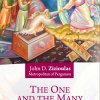A highly regarded musician, she has had residences at the Rockefeller Foundation Bellagio Center, Tanglewood, New York's New Dramatists, MacDowell Colony, and American Opera Projects among others. She has received Awards or Fellowships from the American Academy of Arts and Letters Charles Ives Fellowship, Meet the Composer, Highsmith Composition Competition, Vienna Modern Masters, Serbian Fond for an Open Society, ASCAP Awards, and Douglas Moore Fellowship.
Her early string quartet Pannonia Boundless, evoking eastern European sonorities, has been recorded by the Kronos Quartet on their album Kronos Caravan (1999) and published by Boosey and Hawkes (2007). The Kronos Quartet, with clarinetist David Krakauer, premiered her 40-minute "Babylon, Our Own," commissioned for the 10th anniversary season of the Clarice Smith Performing Arts Center at the University of Maryland in College Park, Maryland, in September 2011.
In her more developed orchestral work Orbits (2002), Vrebalov uses overlapping densities of sonorities and rhythmic proportions such as the Fibonacci series to portray her idiosyncratic post-modern conception of musica universalis.
Her music for the ballet The Widow's Broom (2004) based on Chris Van Allsburg's book has been performed on Halloween by the Festival Ballet Providence.
She has received commissions from Kronos Quartet, Carnegie Hall (co-commission), Barlow Endowment, Festival Ballet Providence, Merkin Concert Hall Zoom Series. Vrebalov is also a co-founder of South Oxford Six, a composers' collective in New York.
In October 2011 her 2-act opera "Mileva," on a libretto by Vida Ognjenović based on her play, was premiered at the Serbian National Theater in Novi Sad, with a repeat performance at the Sava Center in Belgrade as part of the Belgrade Music Festival (BEMUS). The opera was commissioned to mark the 150th anniversary of the Serbian National Theater. The scenario centers on the character of Mileva Marić, the Serbian physicist and mathematician who was Albert Einstein's first wife.
ПОЛИТИКА ONLINE: Опера о Милеви Ајнштајн





